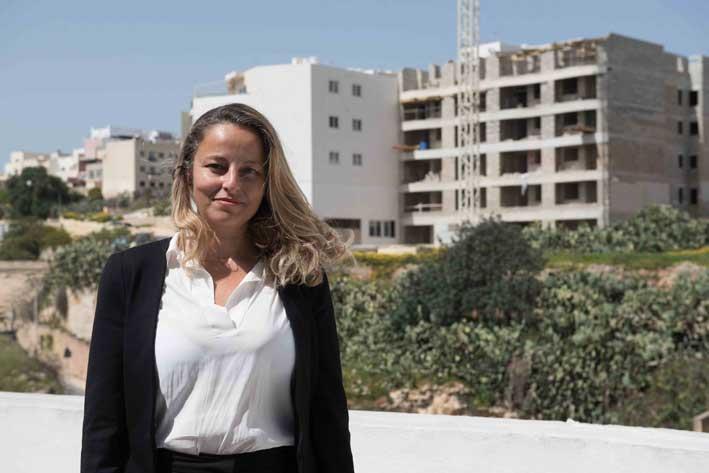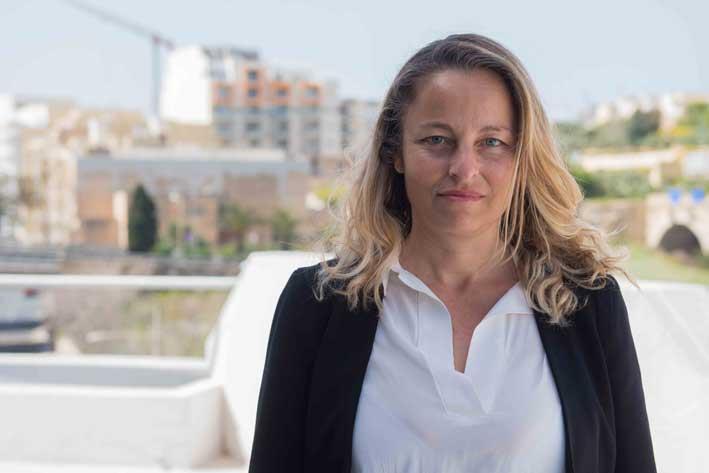Since the MEPA split, do you think there has been any improvement in terms of the environment’s voice being heard?
I am not really concerned about there being two separate entities. My major concern is the lack of coherent policies and the presence of very insidious anti-environmental policies. If you have entities headed by people who, on the whole, pursue decent policies then you will have a positive outcome. The currently policies seem to have a positive aim, but then include provisions which work against the pro-environmental approach.
Let’s take the fuel station relocation policy as an example, it looks as though the main aim is to relocate dangerous fuel stations to areas outside of the urban hearts, however there are provisions for said fuel stations, which were previously made up of a couple of small pumps, to be turned into huge fuel stations on ODZ land up, taking up to 3,000sqm. This is having a horrible impact on ODZ.
Do you believe that eventually, high rise buildings could become an acceptable part of the Maltese Skyline?
I, and most eNGOs are not completely against high rise development, but are in favour of high rises in suitable locations and with adherence to policies. There are currently two high rise policies. One which is very good planning wise – the Floor to Area ratio Policy (commonly known as the FAR policy) – which broadly states that one can build upwards, but must provide public open space. So one sees the value of this policy, as one is reducing the building footprint while providing a space for public enjoyment and recreation.
However, we require this policy to be applied with strict adherence to this provision. When it says that the development must have X amount of open space, it must effectively have that amount. Open space provided in a non-fragmented way.

In the Townsquare case, for example - part of the area designated as public open space is really a subterranean area behind the bathrooms. Let’s be realistic, we don’t want our children playing behind the public conveniences in what is effectively a backyard or shaft. Another area designated as open space is really a road shared by cars. There are sections in the policy which say they shouldn’t be classified as public areas.
There is another policy relating to high rise buildings, which in my opinion is quite frightening. This is the Height Limitation Adjustment Policy for Hotels. There is a part of the policy which allows for an unlimited number of floors to be used for hotel or ancillary services, based on certain criteria – such as if the building is a standalone building, if the building is on 5,000sqm land, or is surrounded by four roads, as long as these floors are dedicated to hotels or ancillary services. This allows for excessively high construction without any beneficial trade-off to the public. There is no open space provision and no compensatory mechanism for the shadowing, wind canyon effect or excessive impact on infrastructure. In effect you are giving a blank cheque to the developer/hotelier without any regard for any residents in the vicinity or the context of the area.
The Ombudsman recently made his opinion known regarding a parking provision policy being used in Sliema - the Commuted Parking Payment Scheme. Do you feel that this scheme should be scrapped?
As a Sliema resident, and someone who works with the local council – a council which really works on this issue - one can see how this scheme is being abused. The scheme basically allows for developers who can’t physically provide the required number parking spaces, the ability to instead pay a contribution which goes into the Planning Authority coffers, which can then be accessed by the local council for urban improvement schemes. The space limitations in Sliema mean that developers are utilising this scheme a lot, so they prefer to pay the contribution. However the local council cannot use the funds effectively to deal with the parking problem due to the very same space limitations. With the rising cost of land there will soon be no land which can affordably be used for such parking schemes.

Is there a solution?
The only realistic solution is for there to be a designated area, or a number of areas dotted around Sliema bought or leased and used for underground parking, or stacked car parks – which would require a change in mentality.
There would need to be small inter-district taxis to take people around. But this needs to be done quickly as the price of property in Sliema is constantly rising.
The Planning Authority must also need to enforce provisions for major projects which state that all parking must be provided on site. In the case of Townsquare, I don’t believe it was properly enforced.
The public transport system in Sliema is also not efficient enough, and people rely on their cars. The PA’s reaction to the Ombudsman report was that people would be encouraged to use public transport if there aren’t enough parking spaces, but this is not the case as the number of cars on the road is rising.

Keeping in mind that tourists enjoy eating lunch outside during the Summer months, should there be new enforcement and new regulation regarding establishments placing tables and chairs on outdoors?
This issue is very evident in Sliema, but is spreading or will spread elsewhere. The policy regarding this issue is well-intentioned, as tourists want to enjoy Malta’s good weather and thus the idea was to promote a café society. However café areas abroad are located in pedestrian areas, or on wide pavements. In Sliema and Gzira, they are putting up catering platforms on parking spaces, which contributes to a decrease in parking space, in addition to it creating a dangerous situation. You cannot have diners share the road with traffic. I was inside a café when a quad bike crashed into tables and chairs outside, luckily nobody was seated there at the moment, but they could have been.
There is also no enforcement or harmonisation for the appearance of these tables and chairs, and this situation does not contribute to the café society idea which was, perhaps, the main thrust behind the policy.
Either limit them to pedestrianised areas or at least ensure that they are in areas where traffic is slow and roads are wide.
Recently, the PN said its councillors were never made aware and/or were involved in any of the discussions and meetings that were held and that led to the formation of the Manoel Island Guardianship Agreement. Had you met with the PN councillors?
Yes, I met them during a local council meeting where the full implications of the Guardianship Agreement and the Statute that regulates the Foundation were explained, before the agreement was actually announced. In fact, one of the PN councillors posted on Facebook that they were in favour of the initiative.
Just to give a bit of background as to how the final agreement has come about. The story starts way back when both Conrad Borg Manche – the Gzira mayor – and myself were children. We used to play on Manoel Island freely with our friends. Fishermen would fish there, teenagers made it their playground. I guess we all saw it as our own community getaway. It is these memories of the area which really drove us to fight for public access.

Borg Manche’ had filed a judicial protest for public access and when I saw this, we got together, ordered a copy of the original concession to see what had originally been contracted. Protests then followed as our interpretation of the contract was that even though there may have been construction, there should not have been a complete closure of the island to the public. We were then joined by environmental activists and the cause gained momentum. We formed the NGO Friends of Manoel Island to further the cause of permanent public access.
MIDI then proposed the master plan for the area and we were less than delighted, primarily due to certain high buildings, the inclusion of a casino and the use of the Fort as a hotel. It looked overtly commercial to us, with very little public space unless people went there to shop or to eat. We objected – quite vociferously. Then there was a breakthrough and a dialogue opened between MIDI and the Friends of Manoel Island NGO.
Guaranteed continued access, truly green areas (not parks over-ridden with kiosks) and less commercialisation was our aim. Eventually we decided to create a mechanism that would outlive this permit, so we set up a non-profit foundation which has one sole aim and duty – to enforce the guardianship agreement.
The agreement imposes certain conditions which MIDI accepted, and includes keeping the buildings to a certain height, a guarantee to keep the public park green and natural, a guarantee not to have any commercialisation or structures in the public park or on the foreshore.
If MIDI does not adhere to the conditions, the foundation can take them to court to demand specific performance on their adherence to these conditions. The administrators will fund such action.

Who would pay if you need to take them to court?
We would.
Out of your own pockets?
Yes, the administrators of the foundation. As administrators we are also shouldering the Foundation endowment together with MIDI.
Who will pay for the maintenance of the 80,000 sqm public park?
MIDI will.
Does the Foundation agree with the idea of the 5-star hotel?
The hotel in the Lazzaretto was always in the plans as per the agreement back in the 2000s. The Lazaretto is a precious Grade 1 building. The problem is, that it is extremely difficult and expensive to maintain. I’d rather have no development, but realistically I would rather have it put to use which can sustain it financially than watch it crumble. Since it is a protected building, any conservation works or development will have to take place very sensitively and according to prescribed method statements.